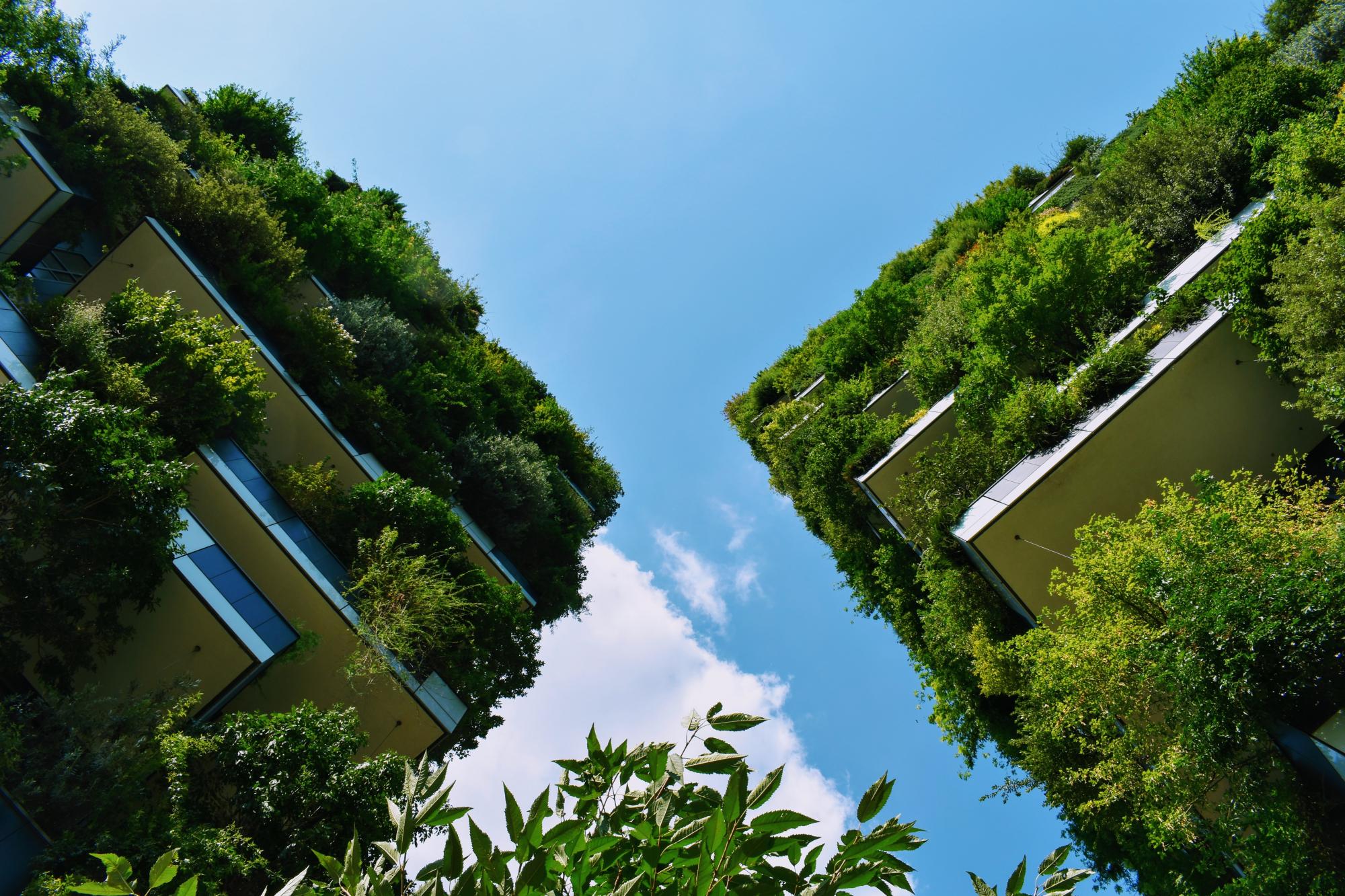Last updated: October 2021
The experimental green facade system consisting of four different types of green wall was installed in Nurnberg from 2013 until 2016 on Adolf-Braun-Strasse 33 and is an integrated greening system that enables self-sufficient, low-maintenance "hanging gardens" on facades and other vertical walls. The aim of the project is to experiment with recreating green spaces in the streets, asphalt surfaces, and backyards of some parts of Nuremberg overcoming numerous constraints and competing uses (1) The implementation has helped improve air quality, thermal insulation, wind and rain protection and lowering local temperatures in its proximity. (2)
Overview
Nature-based solution
- Nature on buildings (external)
- Green walls or facades
Key challenges
- Climate action for adaptation, resilience and mitigation (SDG 13)
- Climate change adaptation
- Green space, habitats and biodiversity (SDG 15)
- Green space creation and/or management
- Environmental quality
- Air quality improvement
- Noise reduction
Focus
Knowledge creation and awareness raising
Project objectives
1. To study the possibilities of installation of the green facade systems in the free spaces of Nurnberg and to become as a decision-making aid for the city of Nuremberg in establishing vertical green roofs for future construction measures. (1, 4)
2. To reveal types of biotopes that are the most suitable for Nurnberg climate (1)
3. To increase the amount of green space in Nurnberg and thus increase aesthetic appreciation (1)
4. To introduce a tool for natural cooling of the area in densely built areas and improving thermal insulation of buildings (2)
5. To decrease the noise effects in the area (2)
6. To improve the air quality (2)
7. To provide protection from wind and rain (2)
Implementation activities
Four green walls of different systems were installed on the wall of the City Drainage and Environmental Analysis Nuremberg (Stadtentwässerung and Umweltanalytik Nürnberg) (2)
These systems were:
1. Humko von Wolf: plastic panels with plant openings and substrate
2. Vertiko: aluminum composite panel with fleece pockets and substrate
3. 90 degree: fiber mat on carrier plate with fleece pockets and no substrate
4. Fassadengrün von Optirün: aluminum square grid with plant openings and substrate (4, 5)
Climate-focused activities
Climate change adaptation:
- Increase or improve urban vegetation cover to help reduce outdoor temperature
- Implement green walls or roofs to lower indoor temperature and provide insulation
- Create or improve outdoor spaces to help people escape from urban heat
Main beneficiaries
- Local government/Municipality
Governance
Management set-up
- Government-led
Type of initiating organisation
- Local government/municipality
Participatory approaches/ community involvement
- Unknown
Details on the roles of the organisations involved in the project
The project was local government led and initiated. Other partners of the project are the City of Nuremberg Environment department, the association Grünclusiv e.V. Nuremberg, the municipal drainage company, and the association Fachvereinigung Bauwerksbegünung e.V. The project receives funding from the Bavaria State Ministry of Food, Agriculture and Forestry. (2)
Project implemented in response to ...
... an EU policy or strategy?
Unknown
... a national policy or strategy?
Unknown
... a local policy or strategy?
Yes
(The project is developed within the initiative "Facade greening: Gardens on the walls of Nuremberg" ("Fassadenbegrünung: Gärten an Nürnbergs Wänden") of the Nuremberg Environment Service (Umweltreferat Nürnberg), City Drainage and Environmental Analysis Nuremberg (Stadtentwässerung and Umweltanalytik Nürnberg (Sun)) and Grünclusiv e.V. Manufacturers (1))
Financing
Total cost
Unknown
Source(s) of funding
- Public regional budget
Type of funding
- Earmarked public budget
Non-financial contribution
Unknown
Impacts and Monitoring
Environmental impacts
- Climate change
- Lowered local temperature
- Environmental quality
- Improved air quality
- Reduced noise exposure
- Improved protection against strong wind
- Green space and habitat
- Increased green space area
- Other
Economic impacts
- Unknown
Socio-cultural impacts
- Education
- Increased support for education and scientific research
Type of reported impacts
Achieved impacts
Presence of formal monitoring system
Yes
Presence of indicators used in reporting
Yes
Presence of monitoring/ evaluation reports
Yes
Availability of a web-based monitoring tool
No
References
1. Stadtportal Nürnberg (2013). Fassadenbegrünung: Gärten an Nürnbergs Wänden. [Weblink unavailable in 2020].
2. Bayerische Landesanstalt für Weinbau und Gartenbau. (nd.) Vertikales Grün: Begrünung mit Systemen. [online]. Available at: Source link [Accessed: 28 Sept. 2020].
3. Bayerische Landesanstalt für Weinbau und Gartenbau. (nd.) Vertikales Grün – Zukunft oder Luftnummer? [online]. Available at: Source link [Accessed: 28 Sept. 2020].
4. Bayerische Landesanstalt für Weinbau und Gartenbau. (2014). Symposium zum Modellversuch Vertikalbegrünung. Available at: Source link [Accessed: 29 Sept. 2020].
5. Bayerische Landesanstalt für Weinbau und Gartenbau. (2016). Vertikales GrünZukunft oder Luftnummer?. Veitshöchheim: Bayerische Landesanstalt für Weinbau und Gartenbau Abteilung Landespflege. Available at: Source link [Accessed: 29 Sept. 2020].
2. Bayerische Landesanstalt für Weinbau und Gartenbau. (nd.) Vertikales Grün: Begrünung mit Systemen. [online]. Available at: Source link [Accessed: 28 Sept. 2020].
3. Bayerische Landesanstalt für Weinbau und Gartenbau. (nd.) Vertikales Grün – Zukunft oder Luftnummer? [online]. Available at: Source link [Accessed: 28 Sept. 2020].
4. Bayerische Landesanstalt für Weinbau und Gartenbau. (2014). Symposium zum Modellversuch Vertikalbegrünung. Available at: Source link [Accessed: 29 Sept. 2020].
5. Bayerische Landesanstalt für Weinbau und Gartenbau. (2016). Vertikales GrünZukunft oder Luftnummer?. Veitshöchheim: Bayerische Landesanstalt für Weinbau und Gartenbau Abteilung Landespflege. Available at: Source link [Accessed: 29 Sept. 2020].


